
The Untouched Beauty of Lospalos
Lospalos, a serene city in the eastern part of Timor-Leste, is a hidden gem waiting to be discovered. Known for its stunning landscapes and rich cultural heritage, Lospalos offers a unique experience for those looking to explore beyond the usual tourist spots. The city's charm lies in its simplicity and the warm hospitality of its people. Nestled amidst rolling hills and lush forests, Lospalos is a paradise for nature lovers. You can embark on scenic hikes, visit traditional villages, and witness the breathtaking views that this city has to offer. The local markets are vibrant and full of life, offering a glimpse into the daily lives of the Timorese people. Don’t miss the chance to try the local cuisine, which is a delightful blend of flavors and influences from the region. Cultural enthusiasts will find Lospalos fascinating, with its well-preserved traditional houses and fascinating rituals. The city is home to several historical sites, including the sacred Uma Lulik houses, which are an integral part of the local culture. Visiting these sites provides a deeper understanding of the Timorese way of life and their enduring traditions. For those seeking a tranquil escape, Lospalos offers a peaceful retreat amidst nature's bounty. Whether you're exploring the rugged terrains or immersing yourself in the local culture, Lospalos promises an unforgettable journey.
Local tips in Lospalos
- Carry cash, as ATMs are scarce and many places do not accept cards.
- Respect local customs, especially when visiting traditional villages and sacred sites.
- Learn a few basic phrases in Tetum or Portuguese to connect better with the locals.
- Plan your visit during the dry season (May to November) for the best weather conditions.
- Hire a local guide to explore the hidden trails and remote villages safely.
The Untouched Beauty of Lospalos
Lospalos, a serene city in the eastern part of Timor-Leste, is a hidden gem waiting to be discovered. Known for its stunning landscapes and rich cultural heritage, Lospalos offers a unique experience for those looking to explore beyond the usual tourist spots. The city's charm lies in its simplicity and the warm hospitality of its people. Nestled amidst rolling hills and lush forests, Lospalos is a paradise for nature lovers. You can embark on scenic hikes, visit traditional villages, and witness the breathtaking views that this city has to offer. The local markets are vibrant and full of life, offering a glimpse into the daily lives of the Timorese people. Don’t miss the chance to try the local cuisine, which is a delightful blend of flavors and influences from the region. Cultural enthusiasts will find Lospalos fascinating, with its well-preserved traditional houses and fascinating rituals. The city is home to several historical sites, including the sacred Uma Lulik houses, which are an integral part of the local culture. Visiting these sites provides a deeper understanding of the Timorese way of life and their enduring traditions. For those seeking a tranquil escape, Lospalos offers a peaceful retreat amidst nature's bounty. Whether you're exploring the rugged terrains or immersing yourself in the local culture, Lospalos promises an unforgettable journey.
When is the best time to go to Lospalos?
Iconic landmarks you can’t miss
Tais Market
Explore Tais Market in Dili: A vibrant hub of local culture, unique crafts, and delightful Timorese cuisine that captures the heart of East Timor.
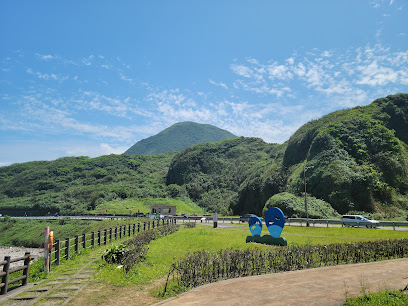
Largo de Lecidere
Discover tranquility at Largo de Lecidere, a vibrant park in Dili, Timor-Leste, where nature meets local culture and serenity awaits.
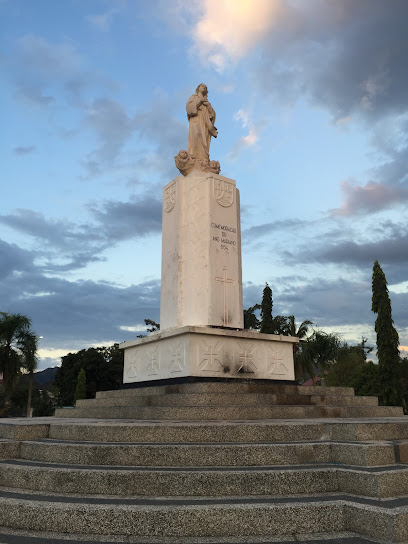
Centro Antigo Guesthouse
Experience the warmth and culture of East Timor at Centro Antigo Guesthouse in Lospalos, where comfort meets local charm.
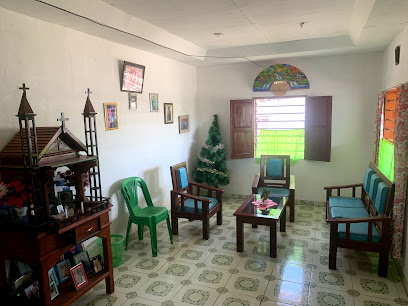
Tugu Uma Lulik Lospalos
Explore the cultural significance of Tugu Uma Lulik in Lospalos, a stunning sculpture that embodies the spirit of Timor-Leste.
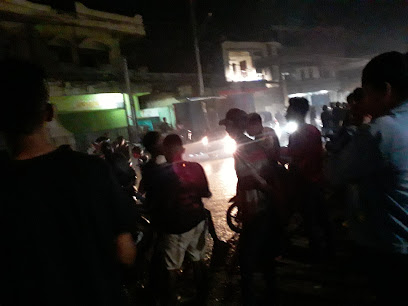
Semiterio De Lospalos
Explore the serene Semiterio De Lospalos, a historic cemetery in Timor-Leste that offers a contemplative experience amidst beautiful landscapes.

Ouchailor
Discover the historical charm of Ouchailor in Lospalos, a landmark that unveils the rich heritage and beauty of Timor-Leste.

Essential places to dine
Restaurante Amalia
Discover authentic Timorese cuisine at Restaurante Amalia in Baucau - a must-visit for food lovers exploring East Timor.
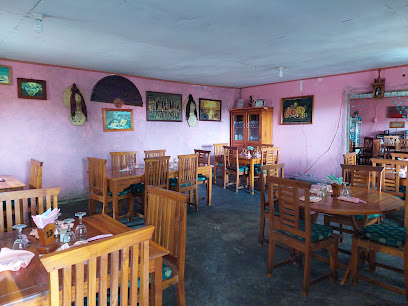
Restaurante Victoria
Experience authentic Timorese cuisine and international flavors at Restaurante Victoria in Baucau's Vila Antiga.
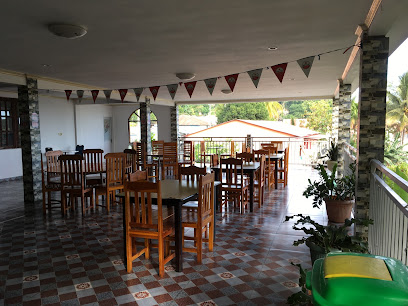
Restaurante Putmor Lorosae
Experience authentic Timorese cuisine at Restaurante Putmor Lorosae in Dili - a culinary gem offering vibrant flavors and warm hospitality.
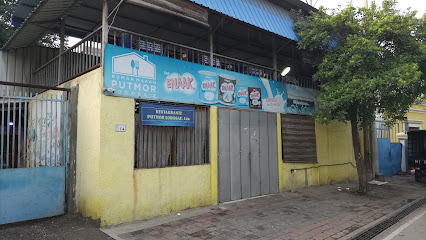
Restaurante Cinta Rasa
Experience authentic Timorese cuisine at Restaurante Cinta Rasa in Lospalos—where every meal is a celebration of local flavors.
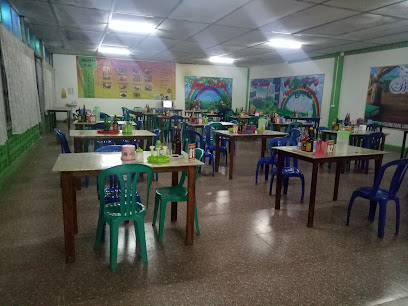
Mini Restourante ziravo
Experience the authentic flavors of Timor-Leste at Mini Restourante Ziravo - a culinary gem in Baucau offering traditional dishes made with local ingredients.
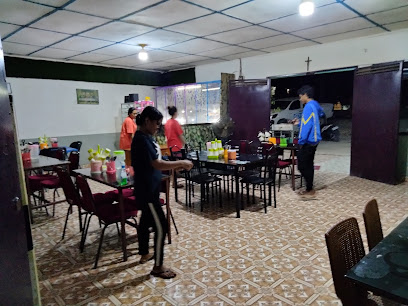
Mulia Grilled Fish
Discover Mulia Grilled Fish in Laga - where fresh seafood meets authentic flavors in a cozy setting.
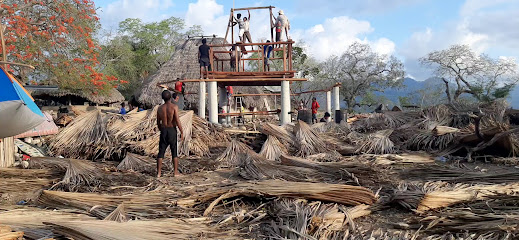
Cliff House Refreshment Area
Experience exquisite Asian cuisine amidst breathtaking views at Cliff House Refreshment Area in Baucau.
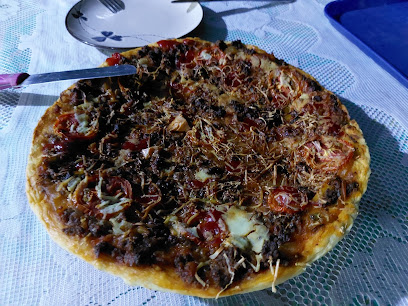
Warung Bakso
Experience authentic Indonesian flavors at Warung Bakso in Lospalos – where every meal tells a story.
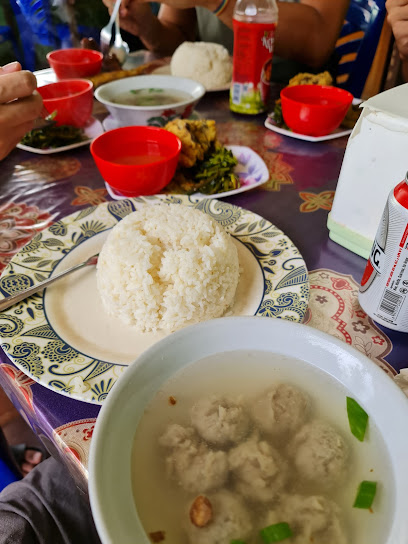
Guest House & Restaurante Angel
Experience authentic Timorese cuisine at Guest House & Restaurante Angel in Lospalos – where every meal tells a story.
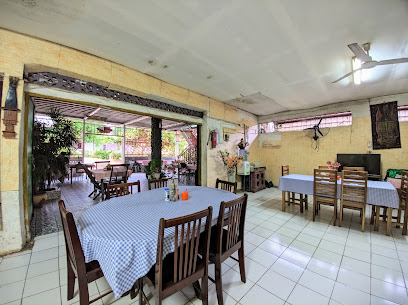
Manu Me'e
Discover the vibrant flavors of Timor-Leste at Manu Me'e in Baucau – where tradition meets taste in every dish.
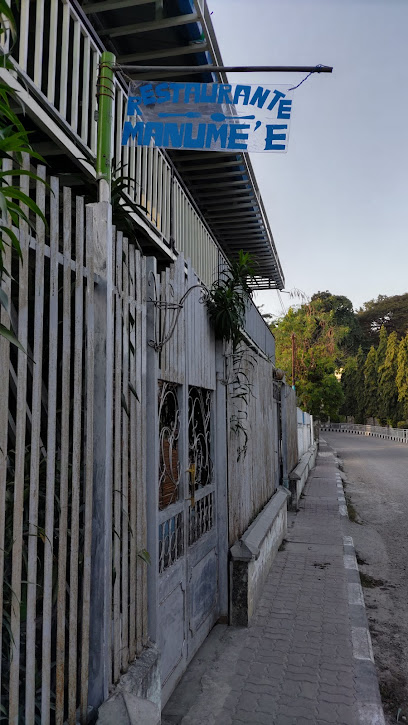
Restaurante Cristina da Silva Freitas
Experience authentic Timorese cuisine at Restaurante Cristina da Silva Freitas in Caicua – where flavor meets culture.
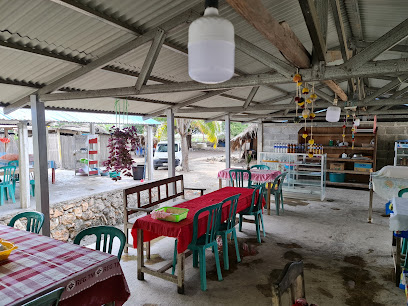
Casa João Ximenes
Experience authentic local cuisine at Casa João Ximenes in Fatulia - where delicious dishes meet warm hospitality.
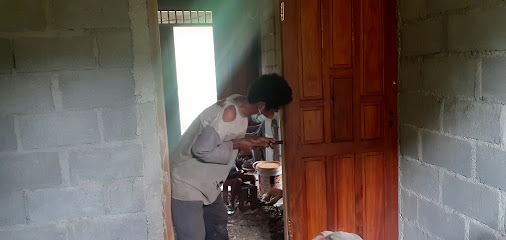
Walu Sere
Discover authentic East Timorese cuisine at Walu Sere in Tutuala – where every meal is a celebration of local flavors.

Residensia Do Sr Mateus Das Neves Ximenes
Experience authentic East Timorese cuisine at Residensia Do Sr Mateus Das Neves Ximenes in Baguia - where every dish tells a story.
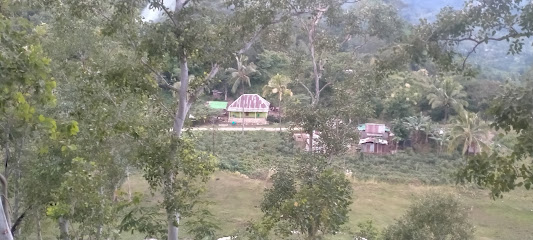
Tiga Bintang
Discover authentic Timorese flavors at Tiga Bintang - A delightful restaurant experience in the heart of Baucau.
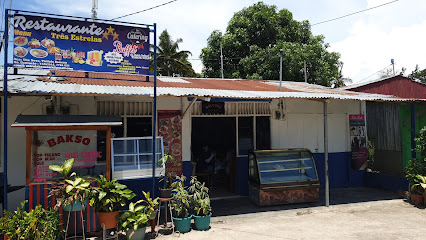
Markets, malls and hidden boutiques
Ira-onu mini shop
Explore Ira-onu Mini Shop for unique local crafts and a true taste of Timorese culture in a welcoming environment.
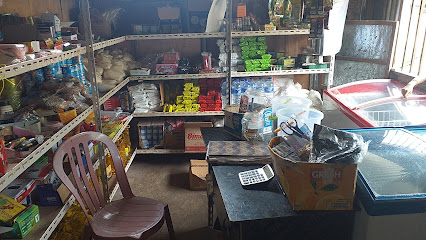
Lospalos Traditional Market
Discover the vibrant atmosphere of Lospalos Traditional Market, a cultural hub showcasing local crafts, fresh produce, and Timorese culinary delights.
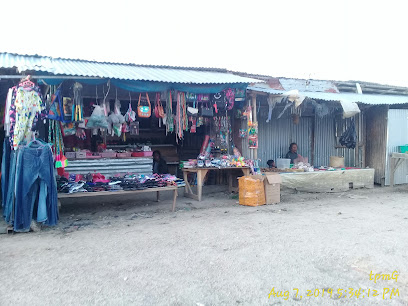
Lien Vexia Farmácia
Discover the essential pharmacy for travelers in Lospalos, providing health products and local insights for a worry-free adventure.
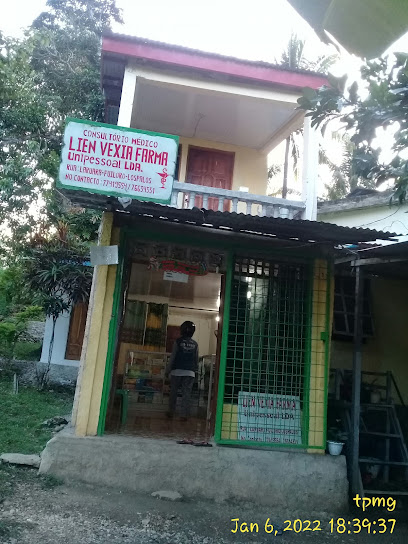
Rumah cristovao
Explore Rumah Cristovao in Lospalos for unique home goods and local crafts that reflect the rich culture of Timor-Leste.

Loja Sentrál
Shop at Loja Sentrál in Lospalos for affordable fashion that blends local styles with contemporary trends, perfect for tourists and locals alike.

Loja Fanumiri
Discover Loja Fanumiri, Lospalos' charming shopping mall offering local products, friendly service, and a taste of Timorese culture.
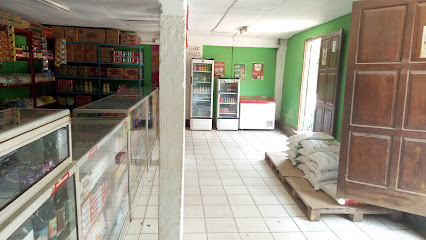
East Timor-Leste
Experience the creamy delights of East Timor-Leste's ice cream, where local flavors and artisanal craftsmanship create unforgettable treats.
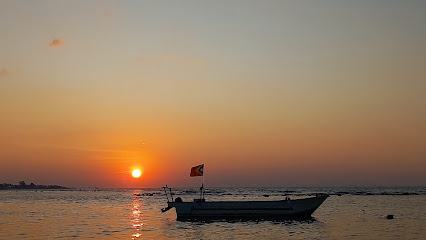
Stationery Shop
Explore Lospalos' Stationery Shop for a unique selection of artisanal stationery and gifts that capture the beauty of Timor-Leste.
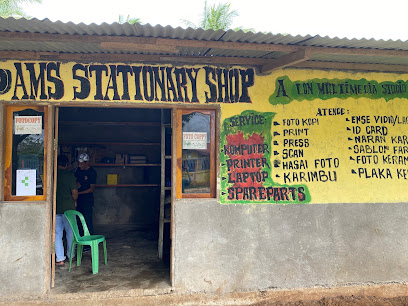
Timor Telecom Lospalos
Stay connected while exploring Lospalos with Timor Telecom's reliable mobile and internet services in East Timor.

Wachu Jaar
Experience the vibrant shopping scene at Wachu Jaar in Lospalos, where local culture meets modern retail therapy.

Lucky El Jetrho Shop
Explore Lucky El Jetrho Shop in Lospalos for trendy and comfortable children's clothing that makes fashion fun for kids!
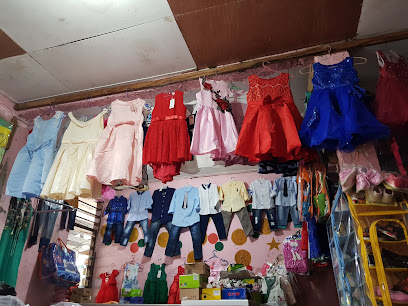
CPP YS Hardware Shop
Explore CPP YS Hardware Shop in Lospalos for all your home building needs, from tools to construction materials, all at great prices.
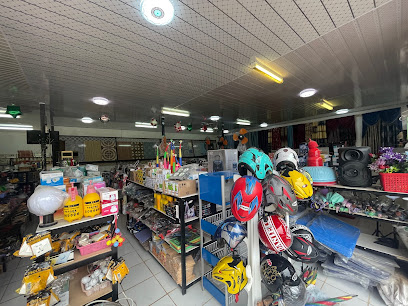
CDJ Municipio Lautem
Discover essential office supplies at CDJ Municipio Lautem, your go-to store in Lospalos for all your stationery and equipment needs.
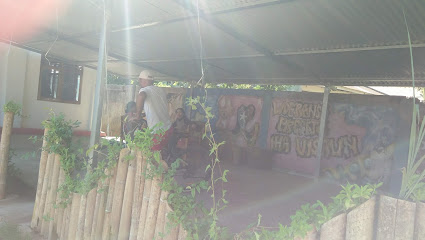
Loja Barter
Explore Loja Barter: A vibrant grocery store in Lospalos showcasing East Timor's rich culinary heritage with fresh produce and local delicacies.
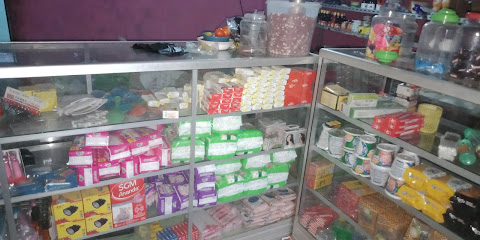
Enche Official Project
Experience local culture at the Enche Official Project in Lospalos, a charming general store offering unique handcrafted items and essential goods.

Essential bars & hidden hideouts
Caz Bar
Discover the vibrant flavors of Dili at Caz Bar, where local cuisine meets a welcoming atmosphere.
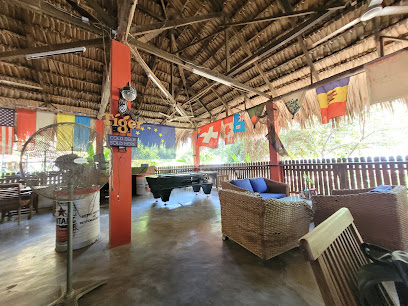
Castaway Bar and Restaurant
Discover the vibrant flavors and welcoming atmosphere of Castaway Bar and Restaurant in Dili, Timor-Leste - where every meal is a celebration.
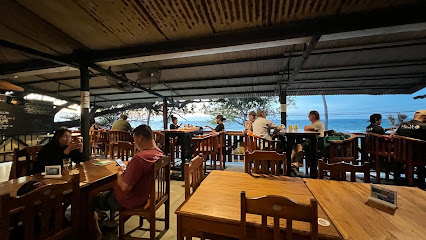
Panorama Restaurant & Sky Bar
Experience exquisite dining and breathtaking views at Panorama Restaurant & Sky Bar, the perfect spot in Dili for unforgettable moments.
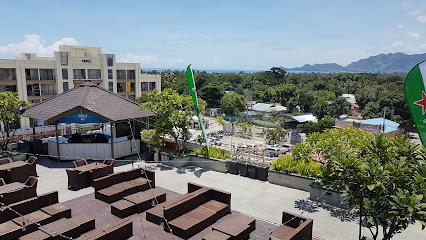
Spooners Bar and Grill
Experience the vibrant atmosphere and delectable flavors at Spooners Bar and Grill, a must-visit bar in Dili for tourists seeking local culinary delights.
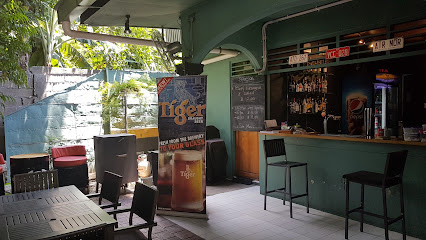
HOTEL ROBERTO CARLOS
Experience comfort and tranquility at Hotel Roberto Carlos in Lospalos, your gateway to the beauty of Timor-Leste.
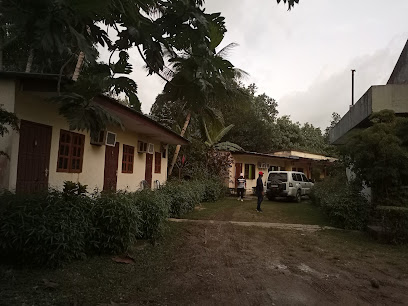
Black Box Cafe and Bar
Experience the vibrant nightlife of Dili at Black Box Cafe and Bar, offering a unique atmosphere and a diverse drink menu.
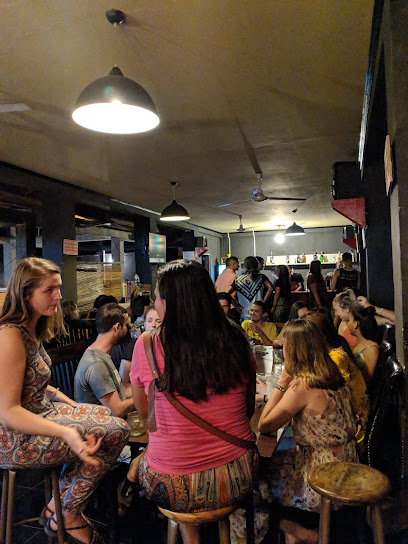
Olé Bar & Tapas
Discover the vibrant flavors of Olé Bar & Tapas in Dili, where local ingredients meet a lively atmosphere for an unforgettable dining experience.
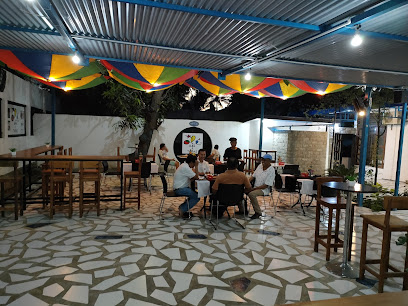
Allalong Internet Cafe & Resto
Discover the perfect blend of culinary delights and digital connectivity at Allalong Internet Cafe & Resto in Dili, Timor-Leste.
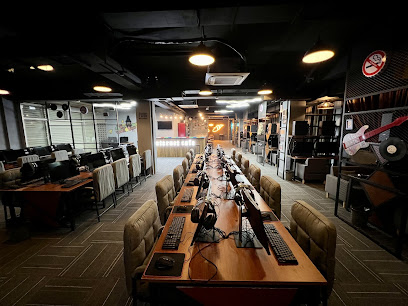
Ponkys Cocktail Lounge
Experience the vibrant nightlife of Dili at Ponkys Cocktail Lounge, where expert mixology meets a lively atmosphere for an unforgettable evening.
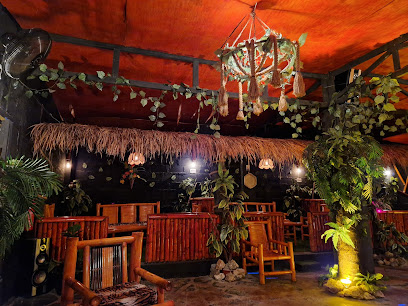
Restaurante Cinta Rasa
Discover the authentic taste of East Timor at Restaurante Cinta Rasa, a vibrant restaurant that offers delicious local cuisine and a unique cultural experience.
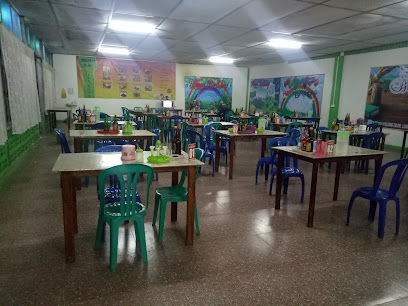
Nova Jar
Experience the lively atmosphere and refreshing drinks at Nova Jar, the heart of Dili's vibrant nightlife.
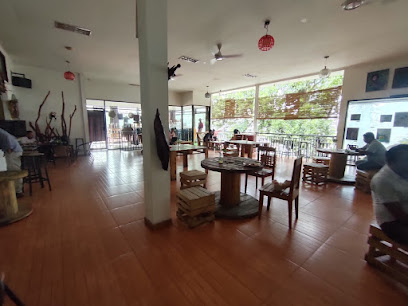
La-Clu-Bar Lounge & Cafe
Discover La-Clu-Bar Lounge & Cafe, the perfect family-friendly spot for delicious meals and cozy vibes in a beautiful setting.
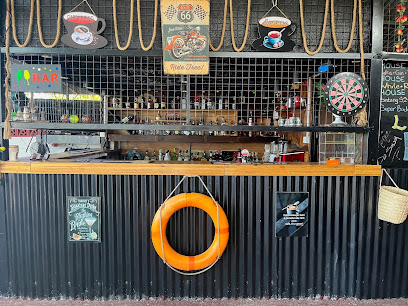
Warung Bakso
Experience the essence of Indonesian cuisine at Warung Bakso, where every dish tells a story of flavor and tradition in Lospalos.
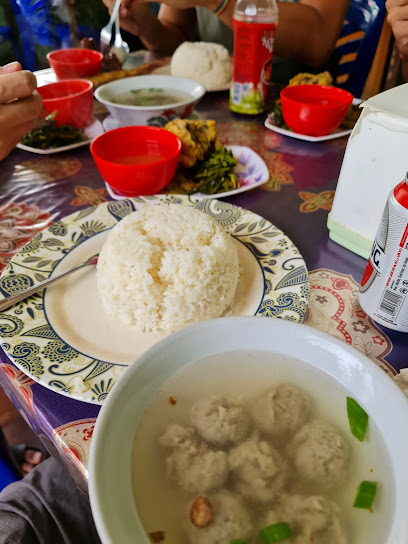
Vanile Guest House
Discover tranquility and hospitality at Vanile Guest House, your cozy retreat in Lospalos, East Timor.
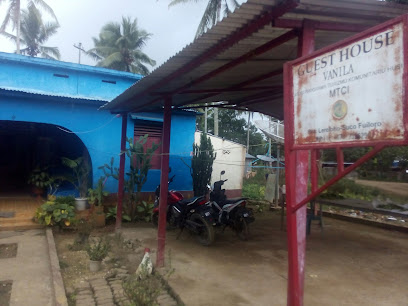
Asarini Cafe and Restaurant
Experience the vibrant flavors of Lospalos at Asarini Cafe and Restaurant, a local gem serving delicious dishes and refreshing drinks.
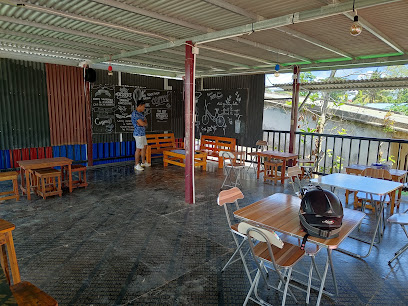
Local Phrases
-
- HelloBondia
[bon-dee-ah] - GoodbyeAdeus
[ah-deh-oos] - YesSim
[seem] - NoLae
[lie] - Please/You're welcomeFavor
[fah-vohr] - Thank youObrigadu
[oh-bree-gah-doo] - Excuse me/SorryDeskulpa
[dehs-kool-pah] - How are you?Diak ka lae?
[dee-ahk kah lie] - Fine. And you?Diak. No ita?
[dee-ahk. noh ee-tah] - Do you speak English?Ita bele koalia Ingles?
[ee-tah beh-leh koh-ah-lee-ah een-glehs] - I don't understandHau la komprende
[how lah kohm-prehn-deh]
- HelloBondia
-
- I'd like to see the menu, pleaseHau hakarak hare menu, favor
[how hah-kah-rahk hah-reh meh-noo, fah-vohr] - I don't eat meatHau la hakaan karne
[how lah hah-kah-ahn kahr-neh] - Cheers!Saude!
[sow-deh] - I would like to pay, pleaseHau hakarak selu, favor
[how hah-kah-rahk seh-loo, fah-vohr]
- I'd like to see the menu, pleaseHau hakarak hare menu, favor
-
- Help!Ajuda!
[ah-joo-dah] - Go away!Ba kotuk!
[bah koh-took] - Call the Police!Telfonu Polisia!
[tehl-foh-noo poh-lee-see-ah] - Call a doctor!Telfonu doktor!
[tehl-foh-noo dohk-tohr] - I'm lostHau mate
[how mah-teh] - I'm illHau moras
[how moh-rahs]
- Help!Ajuda!
-
- I'd like to buy...Hau hakarak koalia...
[how hah-kah-rahk koh-ah-lee-ah] - I'm just lookingHau deit hare
[how deh-eet hah-reh] - How much is it?Kuantu precu ida ne'e?
[kwahn-too preh-soo ee-dah neh-eh] - That's too expensiveIda ne'e tarak karu liu
[ee-dah neh-eh tah-rahk kah-roo lee-oo] - Can you lower the price?Ita bele hamenus precu?
[ee-tah beh-leh hah-meh-noos preh-soo]
- I'd like to buy...Hau hakarak koalia...
-
- What time is it?Ohin ki'ik hasoru?
[oh-heen kee-eek hah-soh-roo] - It's one o'clockOhin ki'ik ida
[oh-heen kee-eek ee-dah] - Half past (10)Ki'ik sanulu resin
[kee-eek sah-noo-loo reh-seen] - MorningManha
[mahn-yah] - AfternoonTarde
[tahr-deh] - EveningTuku-tolu
[too-koo-toh-loo] - YesterdayIha loron ona
[ee-hah loh-rohn oh-nah] - TodayOhin
[oh-heen] - TomorrowAban
[ah-bahn] - 1Ida
[ee-dah] - 2Rua
[roo-ah] - 3Tolu
[toh-loo] - 4Apat
[ah-paht] - 5Liman
[lee-mahn] - 6Neen
[neh-ehn] - 7Hitu
[hee-too] - 8Ualu
[wah-loo] - 9Sia
[see-ah] - 10Sanulu
[sah-noo-loo]
- What time is it?Ohin ki'ik hasoru?
-
- Where's a/the...?Iha nebe...?
[ee-hah neh-beh] - What's the address?Enderecu saida ne'e?
[ehn-deh-reh-soo sah-ee-dah neh-eh] - Can you show me (on the map)?Ita bele hatama hau (iha mapa)?
[ee-tah beh-leh hah-tah-mah how (ee-hah mah-pah)] - When's the next (bus)?Kanek bus ida oin?
[kah-nehk boos ee-dah oy-n] - A ticket (to ....)Bilhete (ba ....)
[beel-eh-teh (bah)]
- Where's a/the...?Iha nebe...?
History of Lospalos
-
Lospalos is a region steeped in ancient traditions and has been home to indigenous communities for thousands of years. The Fataluku people, one of the prominent ethnic groups in Lospalos, have a rich cultural heritage that includes intricate weaving techniques, music, and dance. The region's heritage is deeply rooted in its myths, legends, and traditional practices that have been passed down through generations.
-
The arrival of the Portuguese in the 16th century marked a significant turning point in the history of Lospalos. The Portuguese established a colonial presence and introduced Christianity, which led to the construction of churches and schools. This period saw the merging of local traditions with European customs, creating a unique cultural blend that characterizes Lospalos to this day.
-
During World War II, Timor-Leste, including Lospalos, was occupied by Japanese forces from 1942 to 1945. This period was marked by hardship and resistance, as local communities, including those in Lospalos, played crucial roles in guerilla warfare against the occupiers. The legacy of this resistance is remembered as a testament to the resilience and bravery of the Timorese people.
-
In 1975, following the decolonization process, Indonesia invaded Timor-Leste, leading to a brutal occupation that lasted until 1999. Lospalos, like many other regions, witnessed significant resistance movements. The region’s dense forests and rugged terrain provided refuge and strategic advantages to the Falintil guerilla fighters, who engaged in prolonged battles against Indonesian forces.
-
Following a historic referendum in 1999, Timor-Leste gained its independence in 2002. Lospalos, alongside the rest of the country, embarked on a journey of reconstruction and nation-building. Efforts to restore infrastructure, preserve cultural heritage, and promote education have been central to the region's development. The resilience and determination of the people of Lospalos have been pivotal in shaping its post-independence identity.
-
Lospalos is renowned for its vibrant cultural festivals, which celebrate the rich heritage of the Fataluku people. Events such as the Funu Lulik (sacred house) rituals, traditional dance performances, and weaving exhibitions offer a glimpse into the enduring customs and craftsmanship of the local communities. These festivals not only serve as a tourist attraction but also reinforce the cultural identity of Lospalos.
Lospalos Essentials
-
Lospalos is located in the eastern part of Timor-Leste. The nearest international airport is Presidente Nicolau Lobato International Airport in Dili, approximately 240 kilometers away. From Dili, you can take a bus, hire a taxi, or rent a car to reach Lospalos. The journey typically takes around 6 to 7 hours by road due to the mountainous terrain and road conditions. It's advisable to start your journey early in the day.
-
Lospalos is a small town, and many of its attractions are within walking distance. For longer trips, local taxis and motorcycle taxis (ojeks) are available and relatively inexpensive. Public minibuses, known as microlets, operate within the town and connect to nearby villages. Renting a car or motorbike is also a convenient option for exploring the surrounding areas at your own pace.
-
The official currency in Timor-Leste is the United States Dollar (USD). Credit cards are not widely accepted in Lospalos, so it is advisable to carry cash. ATMs are available, but they may not always be reliable, so ensure you have enough cash for your stay. Smaller establishments and rural areas predominantly deal in cash.
-
Lospalos is generally a safe destination for tourists. However, like any travel destination, it is advisable to take standard precautions. Avoid walking alone at night in unfamiliar areas and keep an eye on your belongings in crowded places. While there are no specific high-crime areas targeting tourists, it is always best to stay vigilant and aware of your surroundings.
-
In case of emergency, dial 112 for immediate assistance. The local police station and medical facilities are available in Lospalos. It is recommended to have travel insurance that covers medical emergencies. For minor health issues, there are pharmacies in the town where you can purchase over-the-counter medications. The main hospital in Lospalos can handle basic medical emergencies, but more serious cases may require a transfer to Dili.
-
Fashion: Do dress modestly, especially when visiting religious sites. Avoid wearing revealing clothing. Religion: Do respect local customs and traditions. Always cover your head when entering churches and other religious sites. Public Transport: Do be respectful and give up your seat to elderly passengers. Don't eat or drink on public transport. Greetings: Do greet people with a friendly 'bom dia' (good morning) or 'boa tarde' (good afternoon). A handshake is also common. Eating & Drinking: Do try local delicacies and accept food offerings graciously. Don’t refuse hospitality, as it is considered impolite.
-
To experience Lospalos like a local, visit the local markets where you can buy fresh produce and traditional Timorese goods. Engage with locals, as they are often friendly and willing to share stories about the town's history and culture. Don’t miss visiting the nearby sacred sites and traditional houses (Uma Lulik) to learn about the local customs and beliefs. For a unique experience, attend local festivals and ceremonies which showcase the rich cultural heritage of the region.
Nearby Cities to Lospalos
-
Things To Do in Baucau
-
Things To Do in Dili
-
Things To Do in Same
-
Things To Do in Aileu
-
Things To Do in Gleno
-
Things To Do in Ermera
-
Things To Do in Bobonaro
-
Things To Do in Suai
-
Things To Do in Darwin
-
Things To Do in Makassar
-
Things To Do in Manado
-
Things To Do in Bali
-
Things To Do in Balikpapan
-
Things To Do in Surabaya
-
Things To Do in Vanimo








